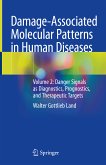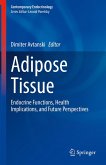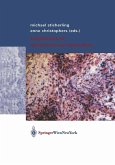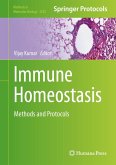This book presents current understanding of the importance of modern immunology in the etiopathogenesis of human diseases and explores how this understanding is impacting on diagnosis, prognosis, treatment, and prophylaxis. As the core of modern immunology, the "danger/injury model" is introduced and addressed throughout the book. Volume I of the book describes the network of damage-associated molecular pattern molecules (DAMPs) and examines the central role of DAMPs in cellular stress responses and associated regulated cell death, the promotion and resolution of inflammation, the activation of innate lymphoid cells and unconventional T cells, the stimulation of adaptive immunity, and tissue repair. The significance of DAMPs in a wide range of human diseases will then be explored in Volume II of the book, with discussion of the implications of injury-induced innate immunity for present and future treatments. This book is written for professionals from all medical and paramedical disciplines who are interested in the introduction of innovative data from immunity and inflammation research into clinical practice. The readership will include practitioners and clinicians such as hematologists, rheumatologists, traumatologists, oncologists, intensive care anesthetists, endocrinologists such as diabetologists, psychiatrists, neurologists, pharmacists, and transplantologists.
Dieser Download kann aus rechtlichen Gründen nur mit Rechnungsadresse in A, B, BG, CY, CZ, D, DK, EW, E, FIN, F, GR, HR, H, IRL, I, LT, L, LR, M, NL, PL, P, R, S, SLO, SK ausgeliefert werden.









